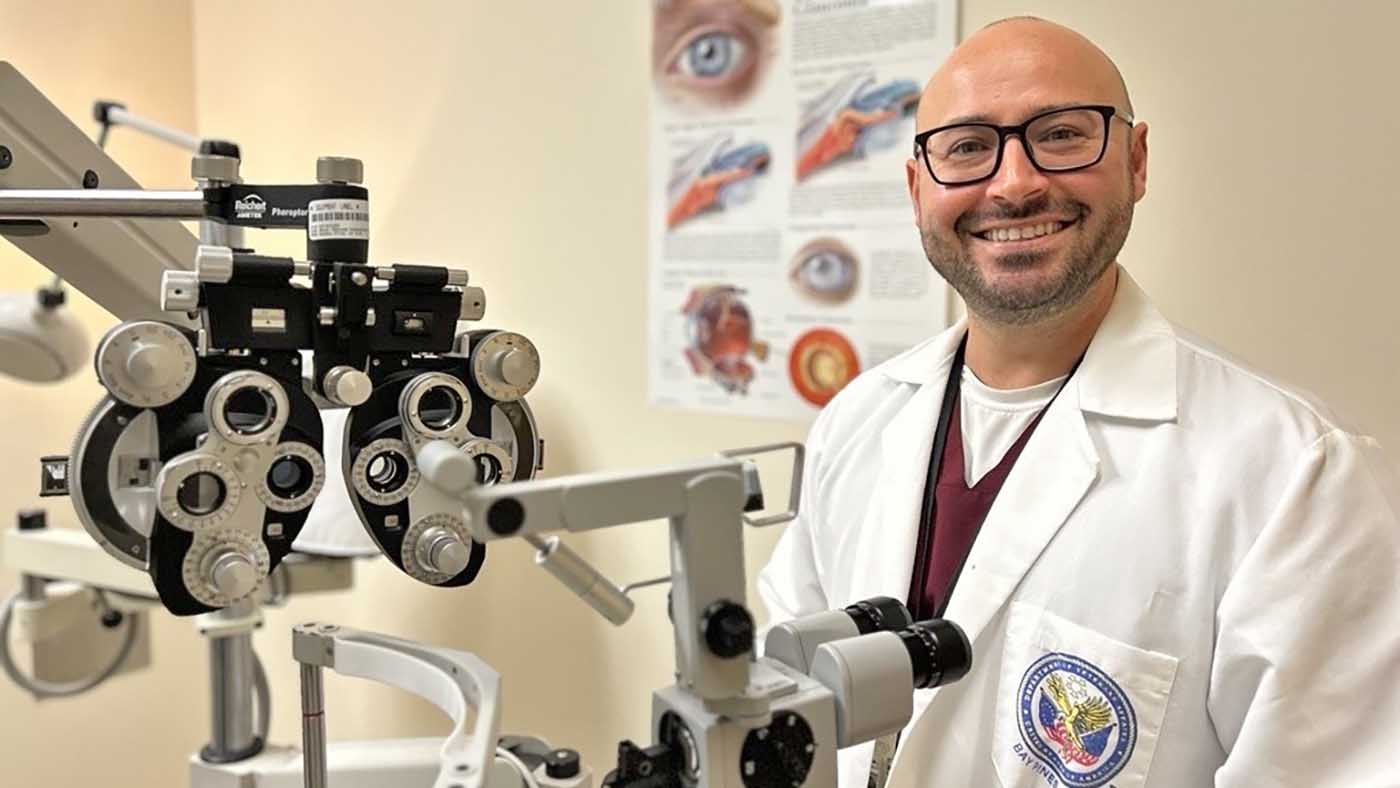Arguably, no one knows the importance of the adage “the eyes are the windows to the soul” better than optometrists. Bay Pines VA optometrist Dr. Daniel Shea also believes that providing eye care is one of the most important ways to support the whole health of Veterans.
Shea joined the Bay Pines VA team nine years ago. He’s experienced mixed levels of assisting Veterans with preventative care as well as helping them manage the conditions they’re already living with. One of the most common and easily treatable diseases he encounters is glaucoma.
“During my fourth year of optometry school, I did a rotation at VA, and that’s when I knew I wanted to select VA optometry as a career. I’ve found the optometry practice here places a heavy focus on treating diseases, and it’s very gratifying to help patients alleviate their problems,” Shea said.
Encourages all Veterans to schedule routine eye exams
“Glaucoma is a condition where most people don’t experience symptoms but very slowly lose their peripheral vision. When they finally get to the doctor, they’re told the damage cannot be reversed once it’s there,” Shea shared.
If left untreated, glaucoma can leave people partially or fully blind. There are several factors that contribute to the development of this disease, including genetics and ethnicity.
Shea and his team encourage all Veterans to schedule routine eye exams with an optometrist, which includes annual optical tests for glaucoma.
“Glaucoma can affect people at any age, but it usually occurs in older patients. For patients 50 and over, it’s recommended they schedule an eye exam annually. Anyone between the ages of 20 and 50 who have no identified problems are recommended to schedule an exam every two years.”
Treatment for mild eye disease includes medicated eye drops
People who have been diagnosed with glaucoma or other eye conditions should schedule an appointment every six months. Treatment for individuals with chronic or mild eye disease typically includes the use of medicated eye drops which can help deter or prevent development of the condition.
Anyone enrolled in VA health care should speak with their primary care provider about receiving optometry services, especially since glaucoma isn’t the only disease that can be discovered through the eyes.
“Other diseases like diabetes and cancer can also be detected during these routine exams, so I urge everyone to take their eye health seriously. I’m not military, but a lot of my family is, so working here is a comfortable place for me. Treating Veterans makes me feel like I’m doing something to help them lead fuller lives.”
Topics in this story
More Stories
Study underscores important role COVID vaccination can have in protecting Veterans from infection and reducing long-term health consequences
Columbia VA’s robotic surgery teams completed their 800th robotic surgery and are on schedule to hit 1,000 by the end of the year.
In a decentralized clinical trial, Veterans can participate from their own homes or local VA instead of having to travel to a research site.







I was never prescribed any medication for my Gaucoma so should I have been?
If only my VA would answer the phone….
A good summary of reasons for regular eye exams. Also maintain the best vision with refractions and update your eyeglasses or contacts.
Does the VA provide eye exams for veterans?
Can anyone get an eye exam?
Make sure they test for all types of Glaucoma. The Air Force only tested me for the most common form and now I’m dealing with failing vision due to having a less common variant. Grrrrr!